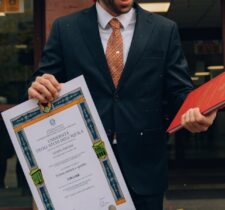The question, is Washington a community property state, plays a critical role in understanding marital property rights within the state. Washington is one of the few states that follow community property laws, which significantly impact how assets and debts are divided during marriage and upon divorce. These laws assume that most property acquired during the marriage is owned equally by both spouses, regardless of individual contributions. Understanding the implications of these laws is vital for married couples, individuals planning to marry, or those going through a divorce.
In this article, we’ll explore the fundamentals of Washington’s community property laws, discuss exceptions and exemptions, and address frequently asked questions. By the end, you’ll have a thorough understanding of how these laws may apply to you and what steps to take to ensure compliance.
Is Washington a Community Property State?
Yes, Washington is a community property state. This means that all property and debts acquired during a marriage are considered jointly owned by both spouses. Exceptions exist for assets acquired before the marriage or through inheritance or gifts. Community property laws can significantly influence property division in divorce or estate planning, so understanding them is crucial.
What Does It Mean That Washington Is a Community Property State?
In Washington, community property laws are based on the principle that all assets and debts acquired during the marriage are equally owned by both spouses. This means that even if one spouse earns significantly more or contributes more financially, the property is still considered jointly owned. This principle is rooted in the idea of fairness and shared responsibility in a marital relationship.
Assets acquired before the marriage, or those obtained through inheritance or as gifts, are generally considered separate property. However, it is essential to maintain clear records and avoid commingling these assets with community property to ensure they retain their separate status.
When a couple divorces in Washington, community property laws guide how assets and debts are divided. The court’s goal is to achieve an equitable distribution, which doesn’t always mean an equal split. Factors such as each spouse’s financial situation, contributions to the marriage, and future earning potential are considered.
Community property laws also impact estate planning. If one spouse passes away, their share of the community property typically goes to the surviving spouse unless otherwise specified in a will. Understanding these laws ensures couples can make informed decisions about managing their assets and liabilities.
Important Features of Community Property Laws in Washington
Understanding Community Property in Washington
In Washington, community property refers to all assets and debts that are acquired by spouses during their marriage. This encompasses income earned, real estate purchased, vehicles, savings accounts, and other financial holdings accumulated while married. Both partners share equal ownership, regardless of their contributions. The concept is based on the notion that marriage is a partnership, with both spouses equally benefiting from and responsible for the property acquired during their union.
Defining Separate Property
Separate property, however, is different. It includes assets acquired before the marriage as well as any inheritances or gifts received during the marriage by one spouse alone. To maintain the separate status of these assets, they mustn’t be mixed with community property. For example, depositing inherited funds into a joint bank account can transform separate property into community property. Keeping these assets distinct ensures they remain the sole property of the original owner.
Dividing Property During Divorce
When a marriage ends, community property laws come into play. Washington courts focus on achieving an equitable division of property, meaning a distribution that is fair but not necessarily equal. In determining how assets and debts are divided, the court may consider factors such as the financial circumstances of each spouse, their contributions during the marriage, and their future needs. While the result is often close to a 50/50 split, the primary goal is fairness rather than strict mathematical equality.
Opting Out of Community Property Rules
Couples in Washington can also choose to deviate from standard community property rules by drafting a prenuptial or postnuptial agreement. Such agreements can spell out how assets and debts will be handled in the event of divorce. By doing so, couples have the opportunity to tailor property division to their unique situation. These agreements must be entered into voluntarily and meet legal requirements to be enforceable. This provides couples with more flexibility and control over their financial futures.
The Role of Debts Under Community Property Laws
Debts incurred during the marriage are treated as community debts. Whether the liability comes from a joint loan or credit card purchases made by one spouse, both parties are generally held equally responsible. During divorce proceedings, these debts are divided alongside the couple’s community assets. The equal sharing of debts reflects the community property principle of treating marriage as a partnership, with both spouses bearing the financial burdens incurred while together.
Common Scenarios Under Washington’s Community Property Laws
- Inheritance or Gifts During Marriage: Assets that a spouse receives as a gift or through inheritance are generally considered separate property. However, if these assets are deposited into a joint account or otherwise mixed with community funds, their separate status can change. This process, known as commingling, may cause the assets to be treated as community property, making them subject to division.
- Income and Retirement Accounts: Income earned by either spouse during the marriage is typically classified as community property. This means both partners have equal rights to it, regardless of who earned it. Similarly, retirement accounts accumulated during the marriage are subject to community property laws. While contributions made before the marriage may remain separate, any growth or additional funds contributed during the marriage are often treated as community property and can be divided upon divorce.
- Property Purchased Before Marriage: Real estate or other assets bought before the marriage are considered separate property. However, this status can shift if significant improvements are made, or if mortgage payments are made during the marriage using community funds. In such cases, part or all of the property’s value may be classified as community property, potentially complicating asset division during divorce.
- Prenuptial Agreements: Couples can enter into prenuptial agreements to define how property and assets will be managed and divided. These agreements provide a level of clarity and protection, allowing couples to set their terms rather than relying solely on state community property laws. For a prenuptial agreement to be enforceable, it must meet certain legal requirements, including full disclosure of assets and voluntary consent from both parties.
Why Understanding Community Property Laws Matters
Washington’s community property laws carry substantial implications for married couples. These laws provide a clear framework for dividing assets and debts in the event of a divorce, ensuring fairness even if the division isn’t perfectly equal. They also establish guidelines for determining ownership of property in estate planning, which can bring clarity and reduce potential disputes. For couples dealing with assets acquired before marriage or through inheritance, understanding these laws is critical to maintaining separate ownership and avoiding conflicts.
From a financial planning perspective, community property laws encourage open communication between spouses. Knowing that debts incurred during the marriage are considered shared responsibilities can lead couples to discuss their financial strategies more openly. This transparency not only fosters trust but also ensures that both partners are on the same page regarding spending, saving, and long-term goals. Additionally, when one spouse passes away, understanding the community property framework simplifies estate planning, as it clarifies how assets will be transferred and prevents surprises for the surviving spouse.
Failing to consider these laws can have serious consequences. For example, mixing separate property with joint accounts or shared funds—a practice known as commingling—can cause the property to lose its separate status and become community property. Such situations can result in unexpected divisions during divorce or disputes among heirs. To avoid these pitfalls, couples are encouraged to consult with legal professionals who can guide how to preserve separate assets and navigate community property rules. By doing so, they can better protect their interests and gain peace of mind about their financial future.
The Basics of Washington’s Community Property Laws
- What Constitutes Community Property: In Washington, any income, real estate, savings, retirement funds, and other assets obtained during the marriage are deemed community property. Likewise, debts incurred by either spouse during this time are also considered shared obligations. The reasoning behind this framework is that marriage is viewed as a partnership, where both parties equally benefit from and contribute to the marital estate, regardless of who earns more or whose name is on the title.
- Separate Property Defined: Not all property falls under the community property umbrella. Separate property includes assets owned before the marriage, as well as inheritances and gifts received solely by one spouse. However, it’s crucial to keep separate property distinct and not commingle it with community property. For instance, mixing an inheritance with jointly owned funds can cause it to be treated as community property. Proper record-keeping and clear separation help maintain the original owner’s sole rights over these assets.
- Impact on Divorce Proceedings: In a divorce, Washington’s community property laws guide the division of marital assets and debts. Although the starting point is an equal split, courts may adjust this division based on several factors. These can include each spouse’s financial circumstances, contributions to the marriage, and future earning potential. The ultimate goal is to ensure an equitable distribution that takes into account the unique situation of each couple, rather than simply dividing everything down the middle.
Conclusion
Answering the question, is Washington a community property state, highlights the importance of these laws in marital relationships. These regulations ensure fairness in dividing assets and debts while providing legal clarity. Whether planning for marriage, managing finances, or navigating a divorce, understanding Washington’s community property laws is essential for informed decision-making and long-term financial security.
FAQ’s
Q: Is Washington a community property state?
A: Yes, Washington follows community property laws, where assets and debts acquired during marriage are jointly owned.
Q: What qualifies as separate property?
A: Assets acquired before marriage or through inheritance or gifts are considered separate property.
Q: Can a prenuptial agreement override community property laws?
A: Yes, a legally valid prenuptial agreement can establish different terms for asset division.
Q: How does community property affect estate planning?
A: Upon a spouse’s death, their share of community property typically goes to the surviving spouse unless specified otherwise in a will.
Q: What happens to debts in a community property state?
A: Debts incurred during the marriage are treated as joint debts, equally shared by both spouses.








